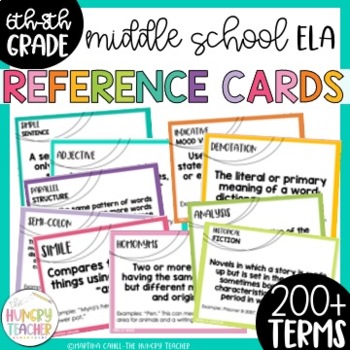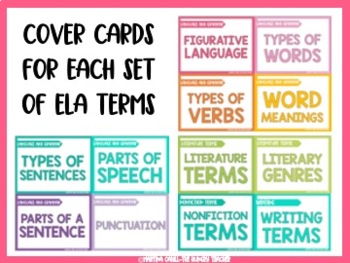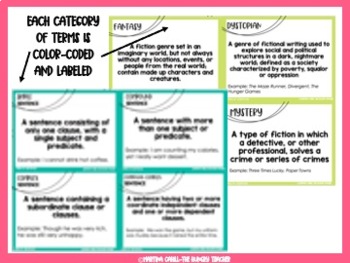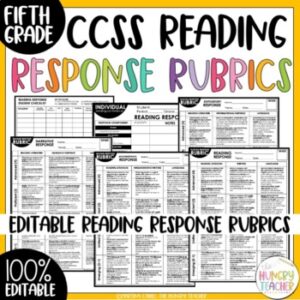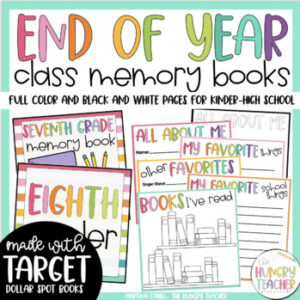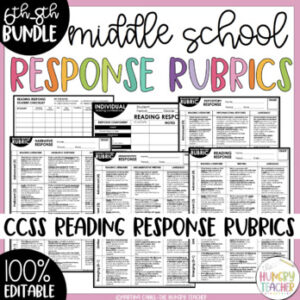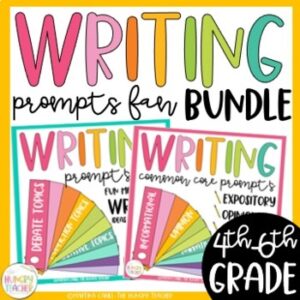Description
Download a preview <<HERE>>
-
Simple sentence
-
Compound sentence
-
Complex sentence
-
Compound-complex sentence
-
Declarative sentence
-
Imperative sentence
-
Exclamatory sentence
-
Interrogative sentence
-
Noun
-
Pronoun
-
Verb
-
Adverb
-
Adjective
-
Preposition
-
Conjunction
-
Interjection
-
Subordinating conjunction
-
Coordinating conjunction
-
Helping verbs
-
Linking verbs
-
Subjective pronoun
-
Objective pronoun
-
Possessive pronoun
-
Intensive pronoun
-
Reflexive pronoun
-
Vague pronoun
-
Coordinate adjectives
-
Article
-
Parallel structure
-
Subject
-
Predicate
-
Clause
-
Subordinating (dependent) clause
-
Independent clause
-
Misplaced modifier
-
Nuances
-
Exclamation point
-
Question mark
-
Parentheses
-
Quotation marks
-
Colon
-
Semi-colon
-
Apostrophe
-
Ellipses
-
Dash
-
Hyphen
-
Period
-
Comma
-
Simile
-
Metaphor
-
Hyperbole
-
Alliteration
-
Onomatopoeia
-
Personification
-
Idioms
-
Allusion
-
Adage
-
Homophones
-
Homonyms
-
Homographs
-
Synonyms
-
Antonyms
-
Denotation
-
Connotation
-
Indicative mood verb
-
Imperative mood verb
-
Interrogative mood verb
-
Conditional mood verb
-
Subordinate mood verb
-
Gerund verbal
-
Participle verbal
-
Infinitive verbal
-
Citing
-
Textual evidence
-
Analysis
-
Explicitly
-
Inference
-
Theme
-
Unbiased
-
Plot
-
Summary
-
Central idea
-
Conflict resolution
-
Internal conflict
-
External conflict
-
Character traits
-
Characterization
-
Point of view
-
Narrator
-
Figurative language
-
Tone
-
Mood
-
Symbolism
-
Flashback
-
Irony
-
Imagery
-
Foreshadow
-
Protagonist
-
Antagonist
-
Scene
-
Compare
-
Contrast
-
Climax
-
Suspense
-
Cliffhanger
-
Flat character
-
Round character
-
Sympathetic character
-
Minor character
-
Dynamic character
-
Static character
-
First-person point of view
-
Third-person point of view
-
Dialogue
-
Genre
-
Fiction
-
Non-fiction
-
Fantasy genre
-
Dystopian genre
-
Science genre
-
Mystery genre
-
Mythology genre
-
Horror genre
-
Memoir genre
-
Poetry genre
-
Traditional literature genre
-
Biography genre
-
Auto-biography genre
-
Narrative genre
-
Rhetorical analysis
-
Literary analysis
-
Ethos
-
Pathos
-
Logos
-
Euphemism
-
Juxtaposition
-
Oxymoron
-
Parallelism
-
Repetition (anaphora)
-
Repetition (epistrophe)
-
Rhetorical question
-
Understatement
-
Verbal irony
-
Paradox
-
Thesis statement
-
Topic sentence
-
Claims
-
Author’s purpose
-
Argument
-
Argumentative writing
-
Supporting claims
-
Relevant evidence
-
Formal style
-
Concluding statement
-
Introduction statement
-
Informational text
-
Exclamatory text
-
Definition (writing strategy)
-
Classification (writing strategy)
-
Compare/Contrast (writing strategy)
-
Formation (writing strategy)
-
Relevant Facts
-
Concrete details
-
Transitions
-
Precise language
-
Domain-Specific vocabulary
-
Narrative writing
-
Orienting the reader
-
Establish a context
-
Dialogue (narrative writing)
-
Pacing (narrative writing)
-
Description (narrative writing)
-
Sensory language (narrative writing)
-
Informal style
-
Writing task
-
Writing purpose
-
Writing audience
-
Planning (writing process)
-
Revising (writing process)
-
Editing (writing process)
-
Publishing (writing process)
-
Credibility of Sources
-
Quote
-
Paraphrase
-
Plagiarism
